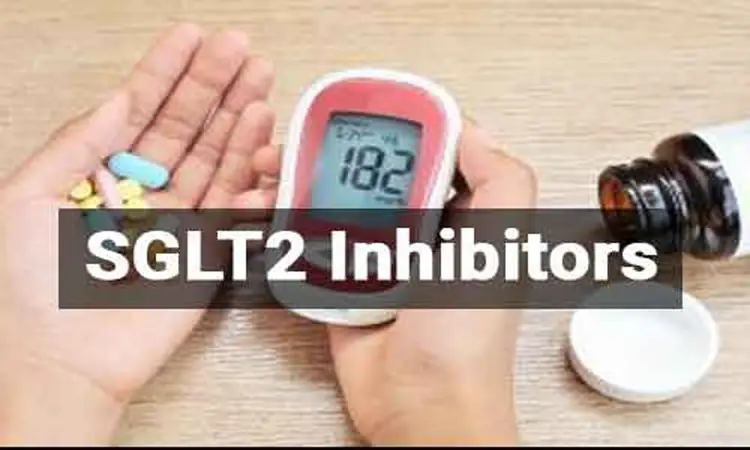- Home
- Medical news & Guidelines
- Anesthesiology
- Cardiology and CTVS
- Critical Care
- Dentistry
- Dermatology
- Diabetes and Endocrinology
- ENT
- Gastroenterology
- Medicine
- Nephrology
- Neurology
- Obstretics-Gynaecology
- Oncology
- Ophthalmology
- Orthopaedics
- Pediatrics-Neonatology
- Psychiatry
- Pulmonology
- Radiology
- Surgery
- Urology
- Laboratory Medicine
- Diet
- Nursing
- Paramedical
- Physiotherapy
- Health news
- Fact Check
- Bone Health Fact Check
- Brain Health Fact Check
- Cancer Related Fact Check
- Child Care Fact Check
- Dental and oral health fact check
- Diabetes and metabolic health fact check
- Diet and Nutrition Fact Check
- Eye and ENT Care Fact Check
- Fitness fact check
- Gut health fact check
- Heart health fact check
- Kidney health fact check
- Medical education fact check
- Men's health fact check
- Respiratory fact check
- Skin and hair care fact check
- Vaccine and Immunization fact check
- Women's health fact check
- AYUSH
- State News
- Andaman and Nicobar Islands
- Andhra Pradesh
- Arunachal Pradesh
- Assam
- Bihar
- Chandigarh
- Chattisgarh
- Dadra and Nagar Haveli
- Daman and Diu
- Delhi
- Goa
- Gujarat
- Haryana
- Himachal Pradesh
- Jammu & Kashmir
- Jharkhand
- Karnataka
- Kerala
- Ladakh
- Lakshadweep
- Madhya Pradesh
- Maharashtra
- Manipur
- Meghalaya
- Mizoram
- Nagaland
- Odisha
- Puducherry
- Punjab
- Rajasthan
- Sikkim
- Tamil Nadu
- Telangana
- Tripura
- Uttar Pradesh
- Uttrakhand
- West Bengal
- Medical Education
- Industry
SGLT2 Inhibitors tied to lower CV risk relative to DPP-4 Inhibitors in Diabetes: BMJ

Previous trials have shown that SGLT2 inhibitors can reduce the risk of heart conditions such as heart attack, stroke, and heart failure compared with placebo.
But some of these trials had important limitations, making it difficult to interpret the results, and data on the effects of individual SGLT2 inhibitors on the heart are limited.
Researchers have found in a new retrospective Study that short-term use of sodium glucose cotransporter 2 (SGLT2) inhibitors is associated with reduced risk for major cardiovascular events in patients with type 2 diabetes, compared with dipeptidyl peptidase-4 (DPP-4) inhibitors.The study has been published in The BMJ.
The researchers conducted the study to compare the risk of cardiovascular events between sodium glucose cotransporter 2 (SGLT2) inhibitors and dipeptidyl peptidase-4 (DPP-4) inhibitors among people with type 2 diabetes in a real world context of clinical practice.
They used Canadian and U.K. databases and matched over 200,000 new users of SGLT2 inhibitors with new users of DPP-4 inhibitors.
They found that compared with DPP-4 inhibitors, SGLT2 inhibitors were associated with a reduced risk of heart attack, stroke or cardiovascular death combined (11.4 events per 1000 person years versus 16.5 events per 1000 person years).
SGLT2 inhibitors were also associated with decreased risks of individual events. For example, heart attack (5.1 v 6.4 events per 1000 person years), cardiovascular death (3.9 v 7.7 events per 1000 person years), heart failure (3.1 v 7.7 events per 1000 person years), and all cause mortality (8.7 v 17.3 events per 1000 person years).
However, SGLT2 inhibitors had more modest benefits for stroke (2.6 v 3.5 events per 1000 person years).
Results were similar in subgroups defined by patient age, sex, past insulin use, and history of cardiovascular disease.
The risk reduction was strongest for cardiovascular death. The SGLT2 inhibitors canagliflozin, dapagliflozin, and empagliflozin all showed similar cardiovascular risk reductions.
The authors concluded that short term use of SGLT2 inhibitors was associated with a decreased risk of cardiovascular events compared with the use of DPP-4 inhibitors.
"These findings suggest that SGLT2 inhibitors offer cardioprotective benefits among people with type 2 diabetes in a real world setting, although additional studies are needed to determine if these benefits persist long term."they said.
The BMJ article (Free)
Dr Kamal Kant Kohli-MBBS, DTCD- a chest specialist with more than 30 years of practice and a flair for writing clinical articles, Dr Kamal Kant Kohli joined Medical Dialogues as a Chief Editor of Medical News. Besides writing articles, as an editor, he proofreads and verifies all the medical content published on Medical Dialogues including those coming from journals, studies,medical conferences,guidelines etc. Email: drkohli@medicaldialogues.in. Contact no. 011-43720751


